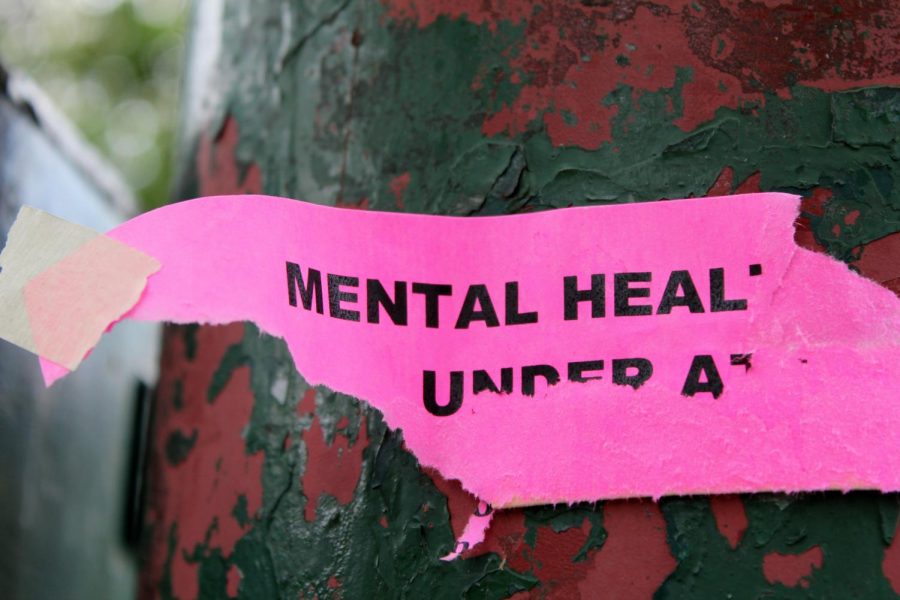Mind over matter
Prioritizing mental health as a college student
The semester is heating up, which can be overwhelming — especially for students making the nerve-racking transition from high school to college. It’s easy to form toxic habits, such as bottling emotions and obsessively focusing on school. However, it’s crucial to be aware of your mental health and stick to a healthy lifestyle.
Our current education system attempts to prep young intellectuals for success through a calamitous tactic that demands perfection. However, many adults fail to realize that their rigid expectations can place an intense strain on young adults that can affect their mental health.
In college, maintaining perfect grades, a satisfactory social life, a steady sleep schedule and good hygiene can be difficult. Many students experience depression and anxiety. According to a Blue Cross Blue Shield report, diagnoses of major depression rose by 33 percent between 2013 and 2016 and were most prevalent among millennials.
Because so many students may not realize that they suffer from depression, it is important to recognize the signs:
- Loss of appetite, or weight gain
- Insomnia
- Feelings of hopelessness, inferiority, sadness, anger or emptiness
- A lack of motivation to attend class, do work, see friends or participate in activities that would normally be enjoyable
- The use of cigarettes, alcohol or drugs to feel fulfilled
- A drop in grades
- Suicidal thoughts or actions
If you or anyone you know are experiencing any of the previously mentioned symptoms, seek help right away. The University of Massachusetts Center for Counseling & Psychological Health can be reached at 413-545-2337 during business hours, or at 413-577-5000 after hours.
Once you’ve sought help, consider these other suggestions for coping with depression, stress or anxiety.
Exercise and get fresh air.
Exercise has healing powers. It stimulates the body to produce a group of hormones called endorphins, which cause a natural, euphoric feeling. According to the American Psychological Association, regular exercise can relieve long-term depression. If going to the gym seems like a stretch, taking a walk can be just as effective.
Socialize.
Whether you’re an introvert or an extrovert, engaging and interacting with others is a great way to take your mind off of stress. Reach out to a friend or relative if you ever feel lonely or in need of conversation. Joining groups on campus is a great way to escape an isolating dorm room and meet new people.
Express yourself through art.
You do not have to be musically or artistically inclined to participate in creative therapy. As a person who has dealt with depression, I am living proof that art can change you. Creative therapy is an avenue to release your emotions authentically, without judgement. Writing has been great outlet to express myself. Without it, I cannot guarantee I would be here today to talk about it.
Keeping a journal, painting and dancing are just a few ways you can creatively express yourself and take a step toward recovery.
Talk to a therapist or join a support group.
Sharing your pain can be difficult. Instead of locking your feelings away, visit a therapist or support group on campus. Reach out to the Center for Counseling and Psychological Health to schedule an individual therapy session, or learn more about support groups. Of course, if you or anybody you know is in immediate danger, call 9-1-1 or the suicide prevention line at 1 (800)–273–8255.
Email Gabby at [email protected] or follow her on twitter @gabby_campos13.









